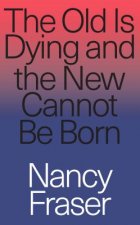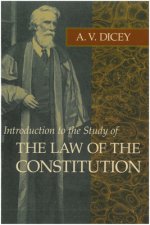
Kód: 04729301
Cultural Formations Of Postcommunism
Autor Michael D. Kennedy
"Transition" is the name typically given to the time of radical change following the fall of communism, connoting a shift from planned to market economy, from dictatorship to democracy. Transition is also, in Michael Kennedy's ana ... celý popis
- Jazyk:
 Angličtina
Angličtina - Väzba: Brožovaná
- Počet strán: 400
Nakladateľ: University of Minnesota Press, 2002
- Viac informácií o knihe

36.51 €
Bežne: 36.52 €
Ušetríte 0.01 €
Dostupnosť:
50 % šanca Máme informáciu, že by titul mohol byť dostupný. Na základe vašej objednávky sa ho pokúsime do 6 týždňov zabezpečiť.
Máme informáciu, že by titul mohol byť dostupný. Na základe vašej objednávky sa ho pokúsime do 6 týždňov zabezpečiť.Prehľadáme celý svet
Mohlo by sa vám tiež páčiť
-

BRIAN JOUBERT SUR PAPIER GLACE
32.18 €
Darujte túto knihu ešte dnes
- Objednajte knihu a vyberte Zaslať ako darček.
- Obratom obdržíte darovací poukaz na knihu, ktorý môžete ihneď odovzdať obdarovanému.
- Knihu zašleme na adresu obdarovaného, o nič sa nestaráte.
Informovať o naskladnení knihy
Zadajte do formulára e-mailovú adresu a akonáhle knihu naskladníme, zašleme vám o tom správu. Postrážime všetko za vás.
Viac informácií o knihe Cultural Formations Of Postcommunism
Nákupom získate 92 bodov
 Anotácia knihy
Anotácia knihy
"Transition" is the name typically given to the time of radical change following the fall of communism, connoting a shift from planned to market economy, from dictatorship to democracy. Transition is also, in Michael Kennedy's analysis, a culture in its own right -- with its own contentions, repressions, and unrealized potentials. By elaborating transition as a culture of power and viewing it in its complex relation to emancipation, nationalism, and war, Kennedy's book clarifies the transformations of postcommunism as well as, more generally, the ways in which culture articulates social change. This ambitious work is, in effect, a nuanced critical-cultural sociology of change.Kennedy examines transition culture's historical foundation by looking at the relationship among perestroika, Poland, and Hungary, and considers its structure and practice in the following decade across fields and nations. His wide-ranging analysis -- of the artifacts of transition culture's proponents, of interviews with providers and recipients of technical assistance in business across Eastern Europe, and of focus groups assessing the successes and failures of social change in Estonia and Ukraine -- suggests a transition culture deeply implicated in nationalism. But this association, Kennedy contends, is not necessarily antithetical to transition's emancipation. By reconsidering transition culture's relationship to the Wars of Yugoslav Succession and communism's negotiated collapse in Poland and Hungary, he shows how transition might be reconceived in terms of solidarity, freedom, and peace.Distinguished by its focus on culture, not only within particular nations but in the transnational communityorganized around transition, this book will help reframe the debate about postcommunist social change.
 Parametre knihy
Parametre knihy
Zaradenie knihy Books in English Society & social sciences Politics & government Political ideologies
36.51 €
- Celý názov: Cultural Formations Of Postcommunism
- Podnázov: Emancipation, Transition, Nation, and War
- Autor: Michael D. Kennedy
- Jazyk:
 Angličtina
Angličtina - Väzba: Brožovaná
- Počet strán: 400
- EAN: 9780816638581
- ISBN: 0816638586
- ID: 04729301
- Nakladateľ: University of Minnesota Press
- Hmotnosť: 505 g
- Rozmery: 229 × 149 × 20 mm
- Dátum vydania: 15. July 2002
Obľúbené z iného súdka
-

The Unabomber Manifesto
10.48 € -

The Communist Manifesto
3.42 € -3 % -

Capital
5.64 € -23 % -

Mein Kampf
26.63 € -

Capital
17.95 € -18 % -

Notes on Nationalism
3.52 € -23 % -
![What Is to Be Done? [Burning Questions of Our Movement] What Is to Be Done? [Burning Questions of Our Movement]](https://media.libris.to/jacket/08800888t.jpg)
What Is to Be Done? [Burning Questions of Our Movement]
7.66 € -

Mass Psychology of Fascism
15.33 € -27 % -

Dance of the Dialectic
22.99 € -14 % -

Old Is Dying and the New Cannot Be Born
8.87 € -21 % -

Fascism
5.03 € -19 % -

The Communist Manifesto
2.01 € -8 % -

On Anarchism
8.97 € -24 % -

Road to Serfdom
17.75 € -19 % -

Mein Kampf
28.75 € -18 % -

State and Revolution
6.85 € -

Imperialism the Highest Stage of Capitalism
7.25 € -

Why Liberalism Failed
17.85 € -11 % -

Capitalism, Socialism and Democracy
15.12 € -

Post-scarcity Anarchism
14.82 € -25 % -

Occult Roots of Nazism
19.16 € -

Revolution And The State
17.44 € -17 % -

Blackshirts and Reds
14.62 € -18 % -

Liberalism
22.49 € -18 % -

Fanged Noumena - Collected Writings 1987-2007
36.62 € -

Principles of Political Economy and Chapters on Socialism
10.99 € -21 % -

Rise of the Fourth Reich
10.28 € -28 % -

Conscience of a Conservative
6.75 € -

Fools, Frauds and Firebrands
14.42 € -24 % -

Communist Manifesto
5.24 € -29 % -

Capital
17.95 € -22 % -

Capital
20.37 € -15 % -

How To Change The World
14.22 € -28 % -

Introduction to the Three Volumes of Karl Marx's Capital
14.72 € -20 % -

Communist Manifesto & Selected Writings
9.98 € -16 % -

Marx: A Very Short Introduction
9.27 € -28 % -

Anarchism
11.39 € -20 % -

Nazi Policy on the Eastern Front, 1941
37.73 € -6 % -

Anarchist Cookbook
19.66 € -10 % -

Specters of Marx
34.70 € -

Introduction to the Study of the Law of the Constitution
14.52 € -6 % -

Naked Communist
22.99 € -20 % -

Wealth and Poverty
28.24 € -20 % -

Alternatives to Capitalism
18.25 € -12 % -

Anarchy, Geography, Modernity
19.87 € -17 % -

Ukrainian Nationalism in the 1990s
45.80 € -

Impossible State
35.71 € -

Undoing the Demos - Neoliberalism's Stealth Revolution
18.45 € -19 % -

Imagined Communities
16.13 € -22 %
Collection points Bratislava a 2642 dalších
Copyright ©2008-24 najlacnejsie-knihy.sk All rights reservedPrivacyCookies


 15549 collection points
15549 collection points Delivery 2.99 €
Delivery 2.99 € 02/210 210 99 (8-15.30h)
02/210 210 99 (8-15.30h)